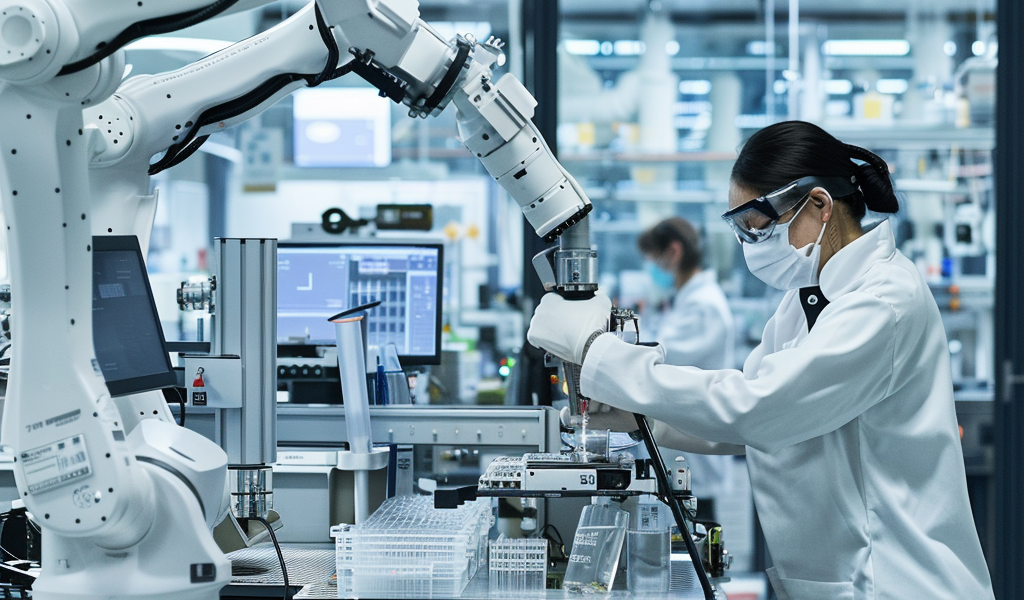Artificial intelligence and automated laboratory infrastructure are revolutionizing the development of new chemical catalysts. Researchers at ETH Zurich have utilized these tools to efficiently synthesize the energy source methanol from CO2.
Catalysts play a crucial role in chemistry, accelerating reactions and reducing the energy required for a reaction to occur. The researchers at ETH Zurich, led by Paco Laveille, have developed a fully digitalized and automated method to expedite the discovery of new and improved metal catalysts. This innovative approach combines artificial intelligence (AI) for calculating promising catalyst compositions with an automated synthesis and test laboratory.
With this advanced infrastructure, the team successfully developed approximately 150 catalyst compositions for producing methanol from CO2 in less than six weeks. The best catalysts demonstrate cost-effectiveness and high conversion rates with minimal byproducts, marking a significant time-saving compared to conventional methods.
The researchers have published two papers on their method, highlighting the potential of methanol as a key element for a sustainable hydrocarbon economy. Methanol’s versatility as both a fuel and a raw material for various organic compounds positions it as a valuable resource for the future.
Furthermore, the liquid state of methanol makes it easier to transport and store compared to gaseous hydrogen and methane, enhancing its practicality as an energy source.





